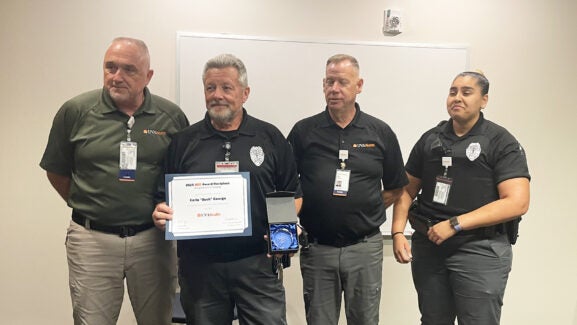

Symptoms associated with menopause include hot flashes, night sweats, and disrupted sleep.
Menopause Drug Reduces Hot Flashes by More Than 70% in International Clinical Trial
The investigational drug elinzanetant significantly reduces hot flashes and night sweats for post-menopausal women, a large, international clinical trial has found.
The OASIS-3 trial enrolled more than 600 postmenopausal women, ages 40 to 65, at 83 sites in North America and Europe. Participants were given either 120 mg of elinzanetant or a harmless placebo daily for 52 weeks.
Elinzanetant recipients saw a more than 73% reduction in the frequency and severity of “vasomotor symptoms” — hot flashes and night sweats — by week 12, the researchers report. The trial also found secondary benefits such as a reduction in sleep disturbances and overall improvements in reported quality of life, though the study did not have sufficient scope to assess these secondary benefits fully.
The drug had no harmful effects on the liver or bone density, the researchers determined.
“Elinzanetant, the first dual neurokinin-1 and 3 receptor antagonist to complete Phase 3 testing, has shown promising results. This yearlong study not only confirmed the initial findings of rapid and significant reduction in the frequency and severity of hot flashes and night sweats but also provided evidence that these effects were sustained over a year, offering hope for longer-term relief,” said researcher JoAnn V. Pinkerton, MD, UVA Health’s director of midlife health and emeritus executive director of the North American Menopause Society. “For those dealing with moderate to severe VMS due to menopause, the treatment options have been limited, especially for those who cannot or choose not to undergo hormone therapy. The disruptive nature of these bothersome hot flashes, particularly when they are more severe, can significantly affect women’s daily lives, both at work and at home, underscoring the urgent need for effective non-hormonal treatments.”
About Elinzanetant
Hot flashes are caused by decreased estrogen levels during menopause and, for some women, years after. Hormone therapy can replace estrogen, but this can come with side effects such as breast tenderness, bloating, headaches and spotting. Less commonly, long-term hormone therapy can cause strokes or increase the risk of certain cancers. Women also may be unable to take the treatment because they have a history of certain medical conditions, such as blood clots or cancer.
Elinzanetant, on the other hand, is a nonhormonal drug that contains no estrogen, so it could offer an important new option for women who cannot or do not wish to receive existing treatment options.
The drug had shown promise in the previous OASIS-1 and -2 clinical trials, but OASIS-3 put elinzanetant to the test at a much larger scale and for an entire year. “Outcomes from this 52-week study were consistent with those observed in the 26-week OASIS-1 and OASIS-2 trials, contributing to the robustness of the findings and indicating the sustained benefit and safety of elinzanetant in a broad population with VMS [vasomotor symptoms] over a prolonged duration of use,” the researchers write in a new scientific paper outlining their findings.
The drug’s most commonly reported side effects were sleepiness, fatigue, and headache. The researchers also looked at mammograms and measures such as endometrial thickness for potential safety concerns but found none.
“In the OASIS-4 trial of postmenopausal women with bothersome hot flashes on endocrine therapy for breast cancer, similar results were found with elinzanetant providing safe, effective relief of hot flashes,” Pinkerton said. “What is so exciting is that with elinzanetant, we potentially have a new treatment option that can be used first-line for moderate to severe hot flashes whether due to menopause or breast cancer endocrine therapy.”
The federal Food and Drug Administration would need to approve elinzanetant before it could become available for patients. The agency delayed a decision on the drug in July, telling the drug’s maker, Bayer, that it needed more time to review the company’s application, which included data from the OASIS-3 trial.
Findings Published
Pinkerton and her co-authors have published the OASIS-3 results in JAMA Internal Medicine. The article is open access, meaning it is free to read.
A full list of the authors and their disclosures is included in the paper. The trial was funded by Bayer.
To keep up with the latest medical research news from UVA, subscribe to the Making of Medicine blog.
Latest News



